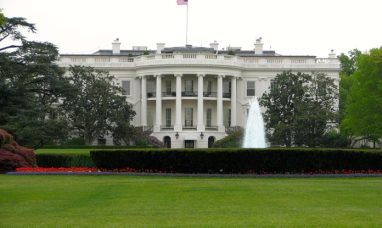The recent developments in Hong Kong have intensified the already strained relations between the United States and China. The Chinese government’s implementation of the new national security law in Hong Kong has been met with significant international backlash, particularly from the United States. Critics argue that this law undermines the autonomy of Hong Kong and breaches the ‘one country, two systems’ framework that was supposed to guarantee freedoms for Hong Kong citizens until 2047.
U.S. Vice President Kamala Harris has been vocal about her concerns regarding China’s actions in Hong Kong. In a recent statement, Harris emphasized the need for the international community to stand united against China’s encroachment on Hong Kong’s freedoms. She highlighted the importance of defending democratic principles and human rights globally.
The U.S. government’s response includes a series of sanctions against Chinese officials deemed responsible for the erosion of Hong Kong’s autonomy. These sanctions have targeted individuals and entities associated with the implementation of the national security law. Additionally, the U.S. has revoked Hong Kong’s special trade status, treating it the same as mainland China in terms of trade and economic privileges.
China’s reaction to these measures has been predictably defiant. The Chinese government has accused the United States of meddling in its internal affairs and has vowed to retaliate against any foreign interference. This tit-for-tat dynamic has escalated tensions and contributed to a broader geopolitical confrontation between the two superpowers.
The economic implications of this standoff are significant. Hong Kong has long been a crucial financial hub, serving as a bridge between China and the global markets. The uncertainty surrounding its future status has led to concerns about capital flight and the potential relocation of businesses. Major financial institutions are reassessing their presence in Hong Kong, weighing the risks of staying against the benefits of operating in one of Asia’s most important financial centers.
Amidst the political turmoil, the stock markets have shown a mixed response. While certain sectors have experienced volatility, others have remained relatively stable. Investors are closely monitoring the situation, as any drastic changes in Hong Kong’s status could have far-reaching consequences for global markets. The stock symbol for Alibaba Group (NYSE:BABA), a major Chinese company listed on the New York Stock Exchange, has been particularly watched by investors.
Beyond the economic and political ramifications, the situation in Hong Kong has sparked a broader debate about the future of global governance and the role of international institutions in upholding human rights. Many experts argue that the international community needs to adopt a more cohesive and assertive stance in addressing China’s actions. This includes leveraging diplomatic channels, economic tools, and multilateral institutions to hold China accountable.
In conclusion, the ongoing tensions between the United States and China over Hong Kong represent a significant flashpoint in international relations. The outcomes of this confrontation will likely shape the geopolitical landscape for years to come. As the situation evolves, it will be crucial for global leaders to navigate these challenges with a balance of firmness and diplomacy, ensuring that the principles of freedom and democracy are upheld.
Footnotes:
- Kamala Harris emphasized the need for a unified international response to China’s actions in Hong Kong. Source.
- The United States has imposed sanctions on Chinese officials responsible for the national security law in Hong Kong. Source.
Featured Image: Megapixl @ Nicoelnino









